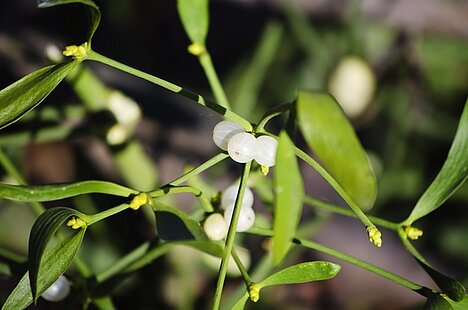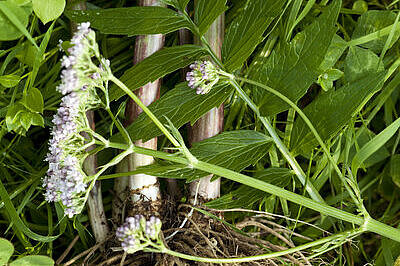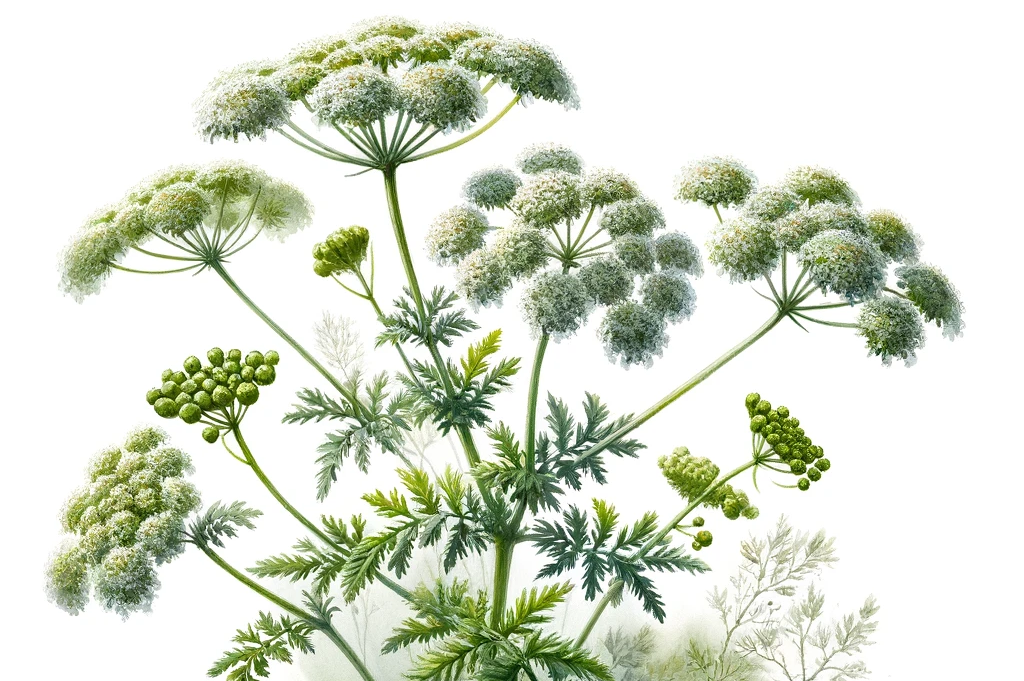Mistletoe

What is mistletoe?
Mistletoe is a semi-parasitic plant that grows on trees. It has green leaves and white berries that are poisonous. Mistletoe has been used in folk medicine for centuries, especially for high blood pressure, cancer and menstrual problems. Mistletoe can also have healing properties for dogs.
How does mistletoe work for dogs?
Mistletoe herb has an immunostimulating and anti-inflammatory effect. It can therefore help with various diseases, such as
- Arthritis: mistletoe herb can relieve the pain and swelling of joints.
- Cancer: Mistletoe can inhibit tumor growth and improve the quality of life.
- Epilepsy: Mistletoe can reduce the frequency and severity of seizures.
- Diabetes: Mistletoe can lower blood sugar levels and stimulate insulin production.
Mistletoe is usually administered as a tea or tincture. The dosage depends on the size and weight of the dog. It is important to consult a vet before using mistletoe.
What are the advantagesand disadvantages of mistletoe for dogs?
Mistletoe herb can have many benefits for dogs, but it can also have some disadvantages. Here are some of them:
Advantages:
- Mistletoe is a natural remedy that contains no chemical additives.
- Mistletoe can strengthen the body's defenses and support the immune system.
- Mistletoe herb can increase life expectancy and zest for life.
Disadvantages:
- Mistletoe herb can cause side effects, such as diarrhea, vomiting or allergic reactions.
- Mistletoe herb can interact with other medications and influence their effect.
- Mistletoe herb can lead to poisoning if overdosed.
Mistletoe is a plant that can have many positive effects for dogs. However, you should always stick to the correct dosage and ask a vet for advice. You should also make sure that your dog does not get into the berries of the plant, as these are poisonous. So if you want to do something good for your dog, you can give him some mistletoe from time to time. But don't forget that it's not a miracle cure and that a healthy diet and plenty of exercise are just as important.
If you notice any signs of hypersensitivity or poisoning in your dog, you should see your vet immediately. We are not a substitute for a vet, but we try to be as accurate as possible. Every dog reacts differently and we recommend you get a second opinion or consult your vet if in doubt.
Stay healthy and take good care of your four-legged friend!😊
Similar to Mistletoe
St. John's wort, also known as Hypericum perforatum, is a flowering plant that is native to Europe, Asia and North America. The plant has been used for centuries in folk medicine to treat various...
Valerian root is the root of the plant Valeriana officinalis, which is native to Europe and Asia. The root contains various ingredients that have an effect on the nervous system, such as valerenic...
Yarrow (Achillea millefolium) is a perennial plant from the Asteraceae family. It has finely pinnate leaves and white or pink flowers that are arranged in flat umbels. The plant grows to a height of...
Mugwort (Artemisia vulgaris) belongs to the Asteraceae family and is native to Europe, Asia and North America. The plant has been used in folk medicine for thousands of years to treat various...



